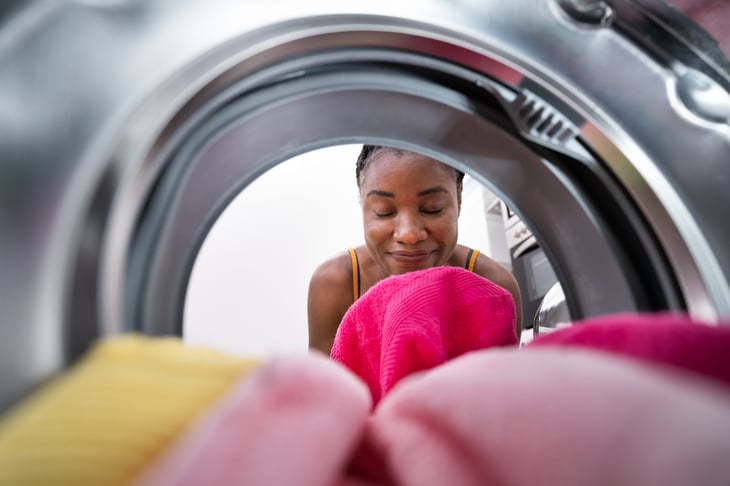
American consumers are swimming in a sea of products. Any need, want or whim can be met with a quick trip to the mall or click of a keyboard.
In this retail wonderland, it’s easy to make a few mistakes.
We’ve all fallen victim to aggressive marketing and been lured in by budget-busting convenience products, impulse buys and things that simply don’t make sense. (That reminds me, does anyone want a gently used Shake Weight?)
If you want to save money, it’s time to become a more intentional consumer. Following is a look at some of the things you should never buy — and what to buy instead.
1. Flushable wipes
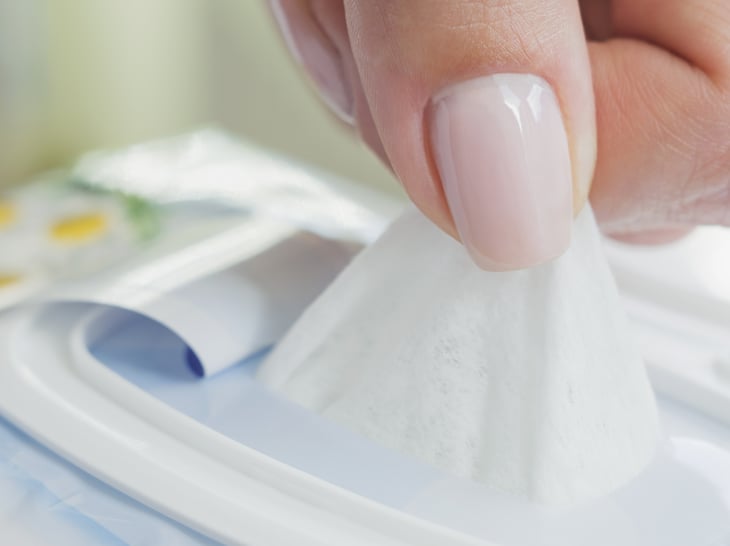
Marketed as a step up from toilet paper, adult wet wipes are another product innovation that we didn’t need.
Besides being far more expensive than traditional toilet paper, these “flushable” wipes are anything but (pun intended). They’re non-biodegradable and wreak havoc on plumbing and sewer systems, as we report in “6 Things You Should Never Flush Down a Toilet.”
The bottom (ahem) line? Save your money, save your pipes and stick with traditional toilet paper. If you just can’t live without a moistened wipe, consider a toilet tissue spray. Amazon has multiple options to choose from.
2. Baby shoes

I get it: Baby shoes are adorable. Their cuteness factor ranks right up there with puppies in Halloween costumes. But since babies don’t walk, investing in fabulous footwear for them doesn’t make sense.
Instead of buying those itty-bitty Adidas, direct that money toward something with real traction. Invest in a college savings plan, buy a savings bond or stop by Money Talks News’ Solutions Center and find a great savings account to open in your baby’s name.
3. Bottled water

According to the Food and Drug Administration, bottled water regulations are modeled after the regulations for tap water — and sometimes bottled water “may be tap water.” It’s therefore reasonable to believe — assuming regulations are being followed — that both are comparable in terms of safety.
If you’re concerned about the purity of your local tap water, invest in a faucet-mounted or under-sink filtration system, or a simple pitcher filter. Any of these options is far more convenient than lugging home cases of bottled water every week from the store.
And by keeping a few reusable water bottles on hand, you can still stay hydrated on the go.
4. Natural diamonds

Diamonds have an undeniable emotional appeal. And couples are willing to pay up for these symbols of love.
But thanks to new technology, lab-grown diamonds might give natural stones some serious competition since they cost as much as 50% less.
Make no mistake, these stones are nothing like the much-maligned cubic zirconia. In fact, they’re so similar to mined diamonds that gemologists often have a difficult time distinguishing the two, as we report in “3 Reasons Lab-Grown Diamonds Are Better Than the Real Thing.”
Lab-produced diamonds are also more environmentally friendly than mined diamonds, and you won’t have to worry about whether you unwittingly bought a conflict diamond.
5. Scented trash bags

Garbage stinks. Literally. But scented trash bags aren’t the answer.
Instead of eliminating odors, they mask them with artificial — and often overpowering — scents. The result? Your trash can smells like a weird potpourri of garbage, pumpkin spice and vanilla.
Skip the expensive scented bags and buy basic can liners or reuse plastic grocery bags.
To eliminate bad smells, try this DIY solution: Fill a disposable coffee filter with baking soda, tie it shut with a twist tie or dental floss, then place in the bottom of your trash can before you add the garbage bag. This homemade sachet will absorb odors for weeks.
6. Retail-priced greeting cards
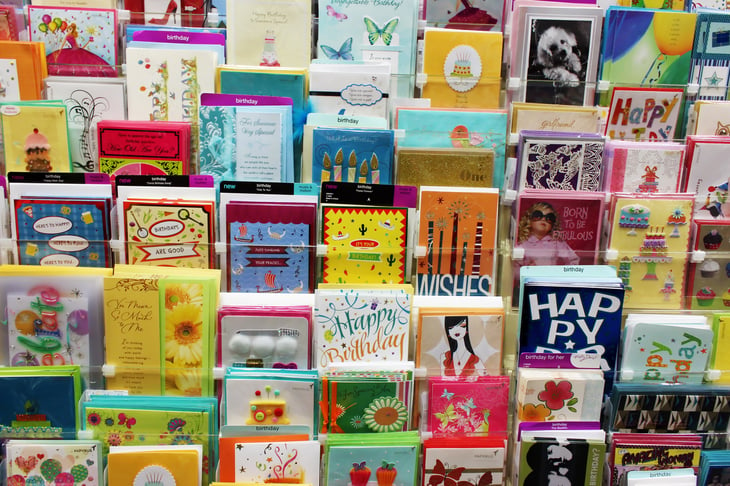
I prefer to skip greeting cards altogether and make a good old-fashioned phone call to the person I’m thinking of. If that’s not your style, consider some other budget-friendly options:
- Cheaper retail cards: Dollar stores have a decent selection of cards for — you guessed it — about $1 or less.
- Thrift store cards: Many thrift shops offer single and bulk greeting cards at amazing prices.
- DIY cards: Get creative and make your own greeting card. As always, Pinterest has loads of great ideas to get you started.
- E-cards: Send a free digital card using a service like Ojolie or Open Me.
7. Class rings
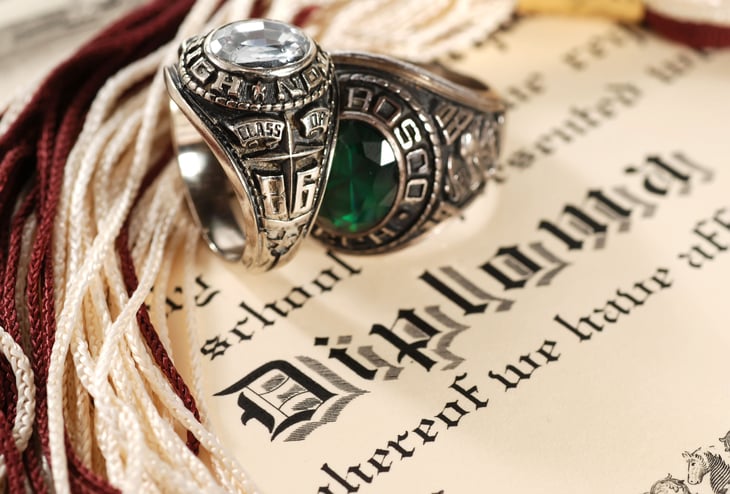
During my senior year of high school, choosing and comparing class rings was the social activity of the year. But if you ask me where that $250 ring is today, I couldn’t tell you.
Class ring manufacturers rely heavily on peer pressure and sentimentality to market their wares. In exchange for hundreds of dollars, unwitting students get a bit of gold, a glass “gem” and a few weeks of giddy anticipation. But these expensive souvenirs become irrelevant in a matter of months.
If your graduate is open to the idea, suggest marking the milestone a different way. Plan a celebratory dinner, coordinate a day trip or purchase something that will make the next phase of life easier — maybe a new laptop or a down payment on a good used car.
8. Mr. Clean Magic Erasers
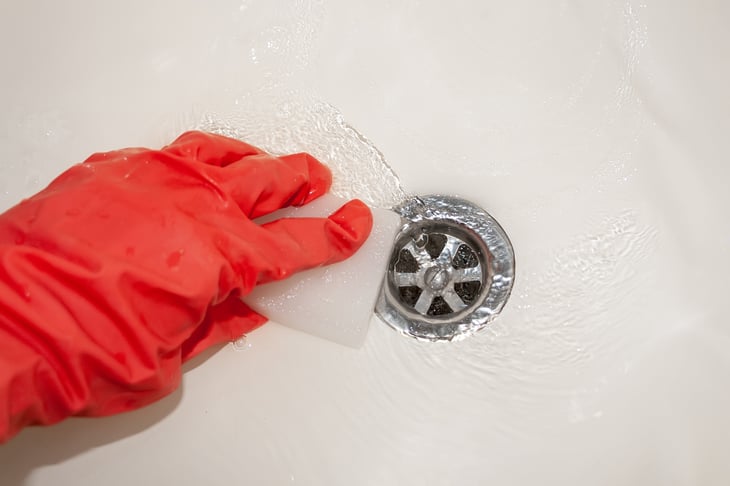
If you’ve ever used one, you know that Mr. Clean Magic Erasers live up to their name. These wondrous little sponges are pure magic — but at almost $1 each, they can even make your money disappear!
To avoid washing your hard-earned cash down the drain, there are generic versions of this miraculous household helper.
Skip the brand-name markup and look for any melamine sponge. Amazon has multiple options for a fraction of the price. You might even find some at your local dollar store.
9. Keurig cleaner

From coffee pod organizers to customized scoops, Keurig coffee makers have spawned an entire industry of peripheral products.
Cleaning doesn’t have to be complicated or expensive. A 1:1 ratio of vinegar and water will clean single-cup and multi-cup coffee makers for pennies.
In fact, the many uses of vinegar will amaze you. It’s one of the most versatile and cost-effective products in your house, as we illustrate in “22 Ways You Should Be Using Vinegar All Over the House.”
10. Paper plates
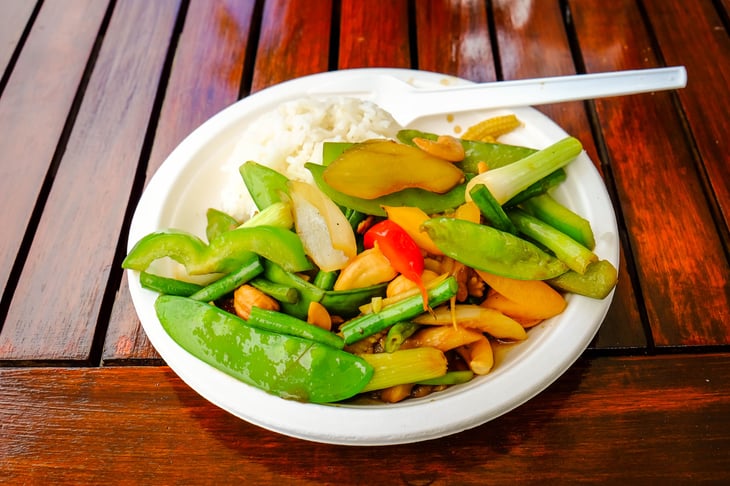
Using paper plates for every meal in order to avoid washing dishes is a slightly disturbing American trend. Sure, doing dishes isn’t my favorite activity, but neither is budgeting for disposable dinnerware every month.
So, how do you solve the daily dish dilemma? Buy some inexpensive plates and bowls that are easy to clean. (Hint: Avoid anything white.)
Then, get the whole family involved in after-meal cleanup. Assign each person a task, like clearing the table, washing or drying. At the same time, listen to music together, share details of your day and make plans for tomorrow.
It may sound corny, but the job will be quick and nearly painless. Even better? You save a few trees and spend less “paper” on paper.
11. Electric can openers
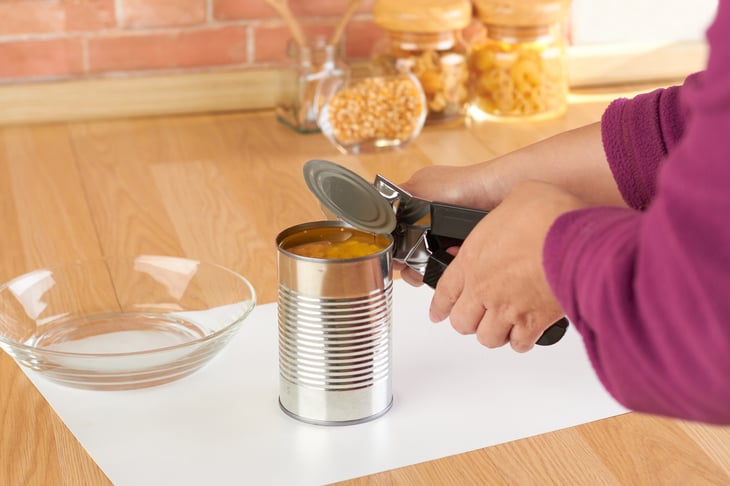
Electric can openers may be necessary if you suffer from arthritis or another dexterity-limiting condition. But for most people, they’re conveniences that become very inconvenient when the power goes out.
Free up some valuable countertop space and save money, too. Skip the electric models and buy a well-made manual opener.
Although I’m a fan of vintage Swing-A-Way openers, Oxo makes a similar version that’s a reliable, easy-to-use product.
12. Expensive wedding dresses

Few events in life spark emotional spending the way a wedding can, but it’s important to realize the day is about the shared experience, not the price of the dress.
Don’t stress your new marriage with wedding dress debt. Consider buying a pre-owned gown at a consignment shop, choosing a less formal dress from a discount store like T.J. Maxx or exploring other ways to pay less for your wedding dress.
13. Flossers
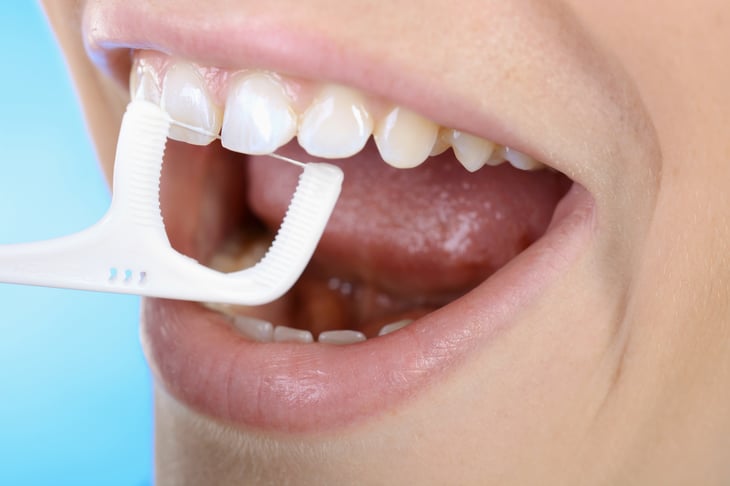
Sometimes, a product innovation is more hype than substance. Handled flossers are a perfect example.
Although great for teaching kids how to floss, these devices are far more expensive than spooled floss, which is also better for the environment.
14. Sandwich bags
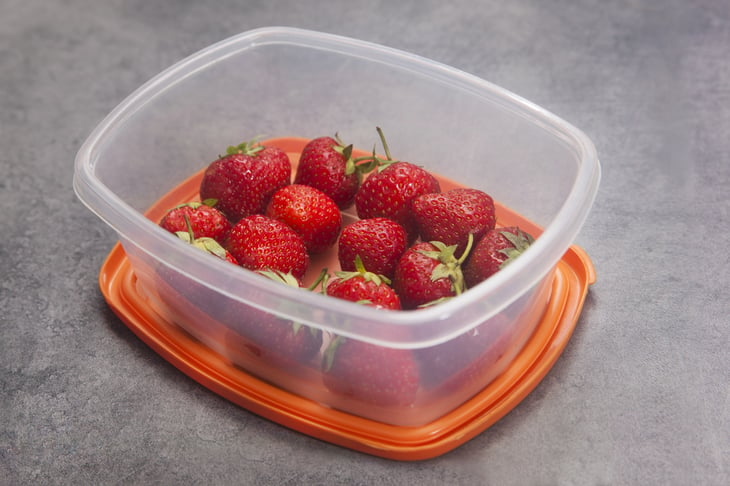
Isn’t buying something designed to end up in the trash the very definition of throwing your money away? It’s time to embrace a greener and more economical alternative to plastic sandwich bags.
Instead of paying for an endless stream of disposable plastic, invest in a few reusable containers. Plastic, glass and even stainless steel options are available. Because these containers generally have air-tight seals, your food is likely to stay fresher. And washing is a snap.
15. New cars

I’m not sure who said “never buy a new car if you want to be a millionaire,” but it’s an adage I live by.
You’ve heard the figures before: According to Carfax, new cars depreciate 20% in the first 12 months of ownership and roughly 15% in each of the four years thereafter.
Why buy anything that’s worth 20% less the minute you take it home? Let someone else shoulder the burden of that first big drop in value. Buy used instead.
By following a few basic steps to buying used, it’s possible to find a reliable vehicle that’s still under warranty, has excellent safety ratings and gets decent gas mileage.
16. Instant microwaveable rice
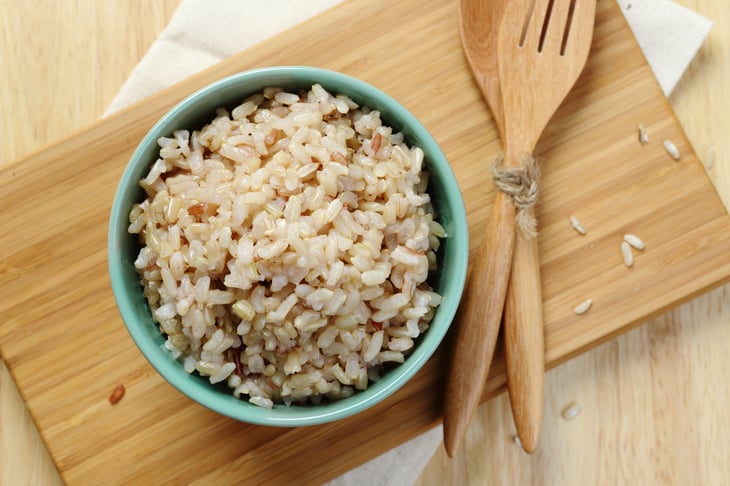
Sure, precooked rice in a bag is quick and convenient, but it comes at a steep price.
Why pay several times more than you need to for a pantry staple? Stick with traditional rice — it’s incredibly simple to prepare. And if you have an electric steamer, you can set it and forget it.
17. Paper towels

I know — suggesting that busy families forgo the convenience of paper towels borders on blasphemy. But there’s a logic behind it.
Let’s assume you buy paper towels for the bargain price of $1 per roll. If you use two rolls a week — not unrealistic — you’ll spend more than $100 a year on something that’s just thrown away.
What’s a practical alternative? Hand towels. Change them often, wash with bleach and voila! You’ve done a solid for your budget and the environment.
18. Mass-produced souvenirs

When I was a kid, my parents planned elaborate two-week-long vacations each year. By age 12, I had a box full of refrigerator magnets, keychains and little metal nameplates. Although these items felt meaningful at the time, I seldom thought about them once the vacation was over.
Instead of loading up on tchotchkes when you travel, invest in new experiences.
Indulge in the local cuisine, plan outdoor adventures and connect with the people who make the place special. The best souvenir is returning home happily exhausted with a suitcase full of wonderful memories.
19. Subscription boxes

While streaming music and video subscriptions can often be more economical than buying or renting, subscription boxes — think meal kits, wine, shaving supplies and pet supplies — are often a slow bleed on budgets.
Here’s the problem: Subscription box services charge us to deliver goods on a regular basis — whether we need them or not. And since payments are made via credit card or automatic deduction, we hardly notice.
Don’t need another box of razors right now? Too bad. You got it, and you’re paying for it.
Instead of signing up for yet another thing of the month, buy what you need as you need it. Better yet, stock up on items you know you’ll use at discount retailers or when the items are on sale.
20. Pre-cut produce

Every processing step added to the sale of produce increases its price. Sure, pre-cut carrots, diced onions and shredded cabbage look enticingly convenient when you’re exhausted and hungry, but you’ll pay heavily for all that pre-prep.
Lettuce (sorry) explore another way: Buy fruits and veggies whole and reserve about 30 minutes after shopping to wash, chop and store enough produce for several days. Seal everything in airtight containers and pop in the fridge.
21. Gym memberships

Joining a gym always seems like a great idea at the time, but then life gets in the way.
When you factor in driving to the club, changing, showering, dressing and driving home, there’s not much time left for working out.
Thankfully, there are many ways to burn calories without the gym. Remove a few of the logistical hassles by investing in at-home exercise equipment.
Quality used equipment can often be found on Craigslist and Facebook Marketplace and even at secondhand shops for a fraction of the retail price. Short on space? Some machines fold up for easy storage under the bed or in a closet.
22. Dryer sheets
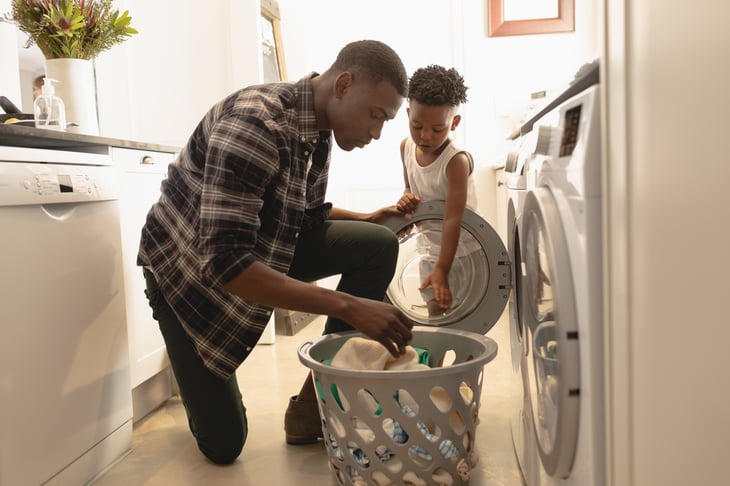
Dryer sheets are coated with stearic acid or other fatty acids, CNET reports. In the heat of the drying cycle, these acids melt and coat the fibers of your clothing to increase softness and decrease static cling.
But dryer sheets have a few unintended consequences. The acids also:
- Make towels less absorbent over time.
- Reduce the wicking effect of activewear.
- Make some pajama fabrics less fire-resistant.
Wool dryer balls are a safe, reusable alternative to dryer sheets. You can find them in many grocery stores and online.
In a pinch, aluminum foil reduces static cling, too. Just crumple a strip of foil into a ball about the size of a tennis ball and toss it into the dryer with your laundry. You’ll be surprised by how well it works.
23. Purebred pets

Because they lack genetic variation, purebred pets are prone to multiple health challenges. According to the nonprofit PETA, purebred dogs are often susceptible to a wide range of problems, such as skin allergies, heart valve defects and glaucoma.
Besides the higher upfront cost of buying an exclusive breed, owners will likely have to shoulder a hidden cost: expensive vet bills to manage chronic conditions.
Instead of buying a purebred pet, consider adopting a rescue from your local shelter. Generally, adoption fees are nominal when compared with the prices breeders charge.
Although these rescue animals may not have the noble lineage of a purebred, they’re in desperate need of a loving home and, I believe, never forget the second chance they’re given.
24. Checked baggage
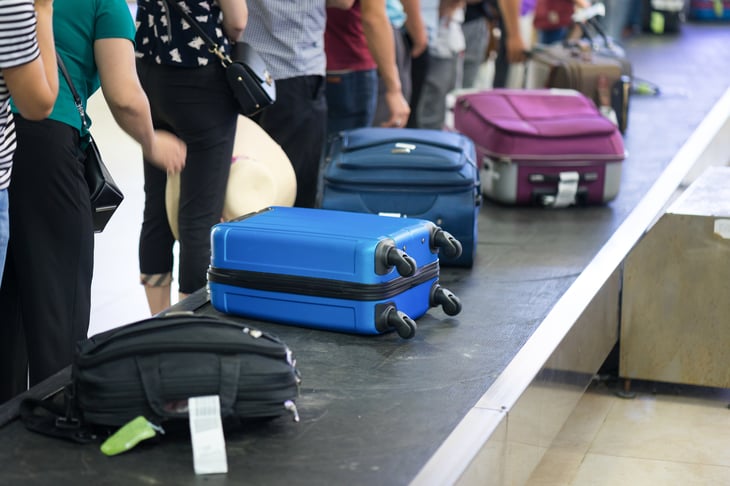
While technically not something you buy, airline fees for checked baggage are still budget-busters. According to Kayak, some airlines charge up to $80 for your first checked bag.
If you’re tired of this “gotcha” fee, invest in a well-designed, small, soft-sided bag and versatile clothing items. You can travel in comfort with only a carry-on.
I’ve been doing it for years, and Money Talks News founder Stacy Johnson details his own secrets in “How to Go to Europe for 10 Days With Just a Carry-On.”
Besides being a money-saver, single-bag travel is a smart strategy. When you have no luggage to reroute, gate agents might be more likely to work with you on last-minute flight changes. Even better: No more fighting crowds at the baggage carousel.
25. Ringtones

Paying for a ringtone? Really? Every purchased ringtone should start with a melodic “cha-ching” — that’s the sound of money leaving your wallet.
Select a factory ringtone or, for more options, download a free ringtone app like Zedge or Audiko.






Add a Comment
Our Policy: We welcome relevant and respectful comments in order to foster healthy and informative discussions. All other comments may be removed. Comments with links are automatically held for moderation.